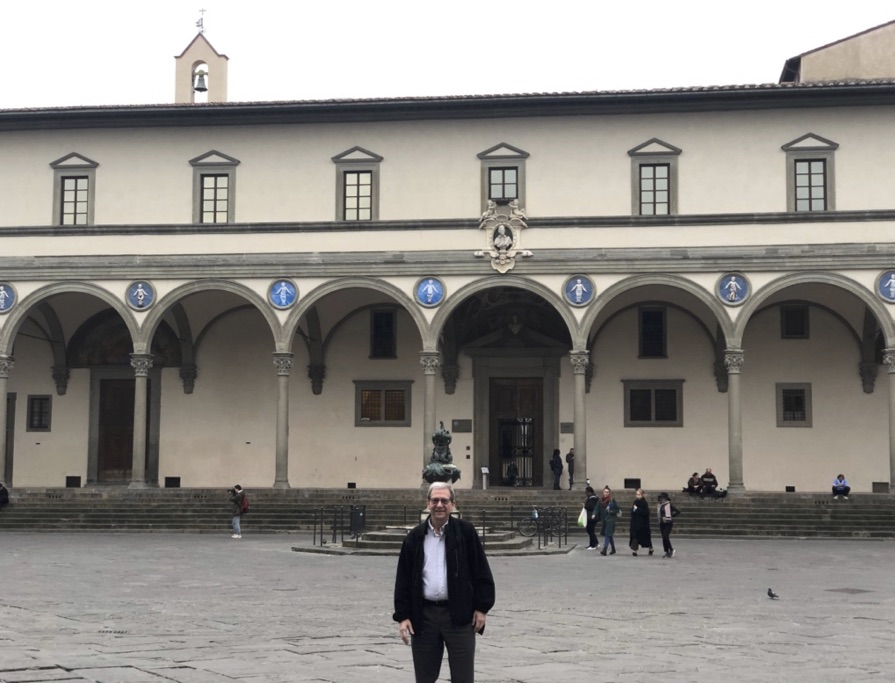This year I planned to go to the AMDA meeting. I registered and made hotel reservations. Then something came up – I found out about a meeting that occurred at roughly the same time, but instead of emphasizing nursing home care, it specifically was organized to highlight alternative solutions to long-term care needs that allowed people to remain in their homes. I work in a PACE program, and both our mission and our financial success involve keeping people out of nursing homes whenever possible. I fully believe sometimes nursing homes are a necessary solution to meet the needs of individuals, but I also see people with dementia or other conditions requiring long-term care who end up in nursing homes because of lack of viable alternatives. The AMDA meeting was in Atlanta this year. This other meeting was in Florence, Italy. Not to denigrate Atlanta, but based on criteria of food, wine, art and gelato, Florence has advantages.
This conference, convened by an international Long-Term Care Alliance, was entitled “The Florence LTC Alliance Aging in Place Conference”. Speakers came from the World Health Organization, the Organisation for Economic Co-operation and Development, insurance companies and universities. Although I am always happy to listen to gerontologists and physicians, I found many of the best talks to be from economists, social scientists, entrepreneurs and technologists. All were there to address the demographic and economic challenges that make in-home care more expensive than institutional care. Although there are no magic bullets, there is clearly an interest in governments and insurers to find better solutions that allow most people to exercise their choice of locale for their long-term care needs, and that is to remain home.
Add to that the fact that the opening session was held in the Salone Cinquecento in the Palazzo Vecchio. I suspect very few of the rooms where the AMDA meeting was held were built in the 15th Century, and I am even more sure none of them had a statue by Michelangelo as part of the décor. Too bad the original wall fresco by Leonardo da Vinci was painted over, but it was spectacular nonetheless. The rest of the meeting was held in Ospedale degli Innocenti, designed by Filippo Brunelleschi and with art by Botticelli, Ghirlandaio and Luca della Robbia. I will say that for a facility built in the 1400s the wifi was remarkably good.
I feel it is important to remember that convalescent level nursing home care and assisted living care, as opposed to short-term rehabilitative nursing home care, are solutions to the challenge of providing hands-on ADL care and supervision to people who need those services, but they are not the only solutions. Institutional care as we know it is very much influenced by regulations that are national or state specific, and other countries often have other ideas and practices that we can learn from. I enjoy interspersing international meetings with my attendance of meetings within the United States. This August I’ll be attending the International Psychogeriatric Association’s congress in Santiago de Compostela, Spain. I plan on arriving the old-fashioned way, after walking more than 100 km on the Camino de Santiago or The Way of St. James. This set of pilgrimage paths has been in use for a thousand years. Last time my wife and I did it we went from the direction of France, so this time we are doing the Camino Ingles - The English Way from the coastal city of Ferrol. I will look forward to sitting in the audience for some great talks after having walked 73 miles to get there. If you are interested in attending I would be happy to share information and advice.

Me in front of the Ospedale degli Innocenti where the meeting was held.


I would like to commend Dr. Luxenberg for pointing us out to the world. He not only, divulged his food preference, but also pointed us in the direction of Europe, where social determinants are driving health services . I appreciate him pointing out that institutional LTC, as important as it may be, is a an unfortunate default to a society that is inadequately planning services for the elderly. Our goal in LTC(NH) is to make sure that the stay is short, and as many as possible, return to community dwelling with adequate support so they will not return back to the NH. I am fortunate to be working for SCAN health plan and HealthCHEC that have the missions to keep elders healthy and independent. Dan Osterweil